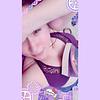Take a photo of a barcode or cover
dark
emotional
informative
inspiring
sad
tense
medium-paced
One of the best biographies I’ve read. Thoroughly researched, skillfully written, and deeply emotional. I was moved to tears at the end.
However, I struggle with biographies. The facts are tainted by the author’s own opinions. The conclusions drawn about the subject are less about reality and more about the author’s agenda. In spite of the comprehensive nature of this book and the veritable fountain of factual information on Sylvia’s life, there are a lot of: might haves, could haves, and may haves.
Every biography has an element of the author in it. That’s an unavoidable thing. However, biographies work best when they simply state facts and allow the audience to draw their own conclusions. The book is at its strongest when it sticks to Sylvia’s own journals and letters and those of her family and friends, and allows her life and choices to speak for themselves.
Of Sylvia herself there is too much to say. I have pages of notes that I could reference. But rather than sharing them, I would encourage anyone who is interested to read the book. In spite of some minor authorial challenges, this empathetic and complex portrait of a singularly gifted woman is worth the time. On a personal note, reading this and coming to know Sylvia encouraged me to take some risks with my own writing and helped me rediscover a lost sense of rawness and truth.
Maybe I don’t need that in depth of a biography for Silvia Plath
informative
reflective
sad
slow-paced
Reading about mental illness and ambition does not suit my recovery from covid and concussion.
Just too dense and feel it is too much praise of plath
challenging
informative
reflective
medium-paced
‘This book is by no means the last word on Sylvia Plath. Over time, new material will surface and new questions will emerge.’
Sylvia Plath (27 October 1932 – 11 February 1963) was an American poet, novelist, and short story writer. In 1981, The Collected Poems were published, including previously unpublished works. Sylvia Plath was awarded a posthumous Pulitzer Prize in Poetry in 1982.
Sylvia Plath was born in Boston, Massachusetts. She graduated from Smith College in Massachusetts and the University of Cambridge, England, where she was a student at Newnham College. Sylvia Plath married fellow poet Ted Hughes in 1956, and they lived together in the United States and then in England. They had two children before separating in 1962. Sylvia Plath took her own life on 11 February 1963, aged thirty.
I first read some of Ms Plath’s poetry in the 1970s, and recently reread The Bell Jar. And now, having read Ms Clark’s exhaustive biography, I feel that I have a greater understanding of the woman as well as the poet. I would need to revisit Ms Plath’s poetry now: what made an intuitive sense to me as an angst-ridden teenager would read differently now. I remember my sadness when I learned that Ms Plath died at the age of thirty. I wondered —and still wonder— what if … she had lived longer? Found the peace and space required to create?
Ms Clark presents a comprehensive, well-researched account of Sylvia Plath’s life. The nine-hundred-and-thirty-page biography is accompanied by almost two hundred pages of notes and index.
I finished this book grateful to Ms Clark for presenting a more nuanced account of Sylvia Plath’s life and work. And yes, by the end of the book even though I resisted strongly, I felt a small degree of sympathy for Ted Hughes.
Jennifer Cameron-Smith
challenging
emotional
informative
sad
slow-paced
Truly stunning. Clark's pacing is incredible, I couldn't put it down (and it's a heavy book). Red Comet is such a comprehensive biography, as Clark had access to materials that previous biographers have not. Sylvia Plath has had a mythology around her since her death, and Clark dispels the reductive or romanticized narratives around her, painting a balanced portrait of an ambitious, prescient, and at times contradictory artist. She challenges the label "confessional," highlighting Plath's exploration of political and cultural themes through a focus on personal and domestic experiences. I was struck by Clark's ability to thread literary analysis of Plath's works (as well as larger literary movements, through her account of Plath's life) while avoiding the narrative that Plath could only write autobiographically. I highly recommend this book. It is illuminating and never dull.









